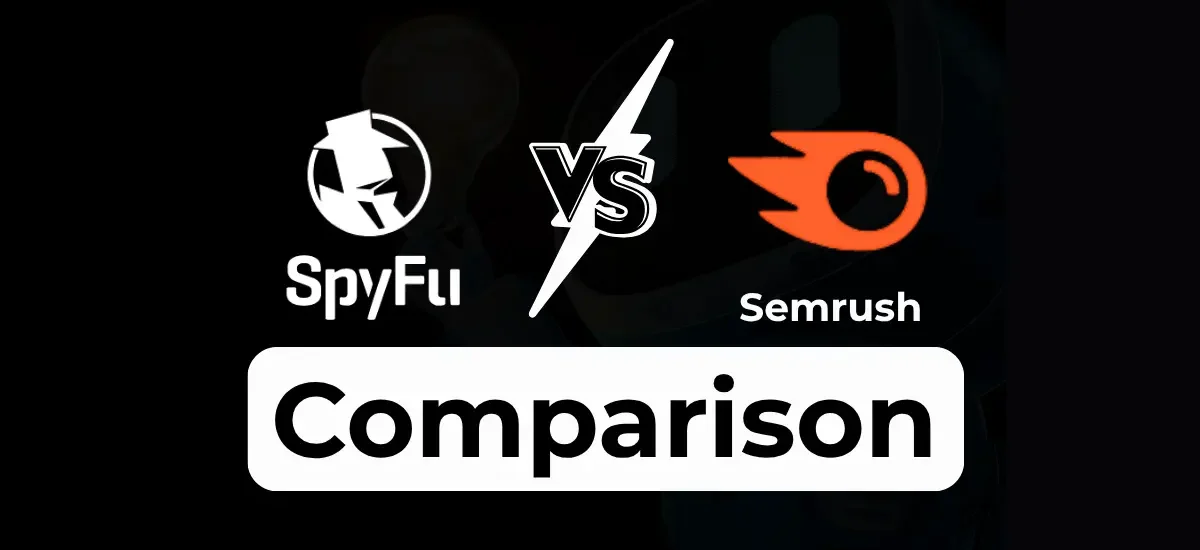



Deciding between SpyFu and Semrush for your 2025 SEO and PPC campaigns can be challenging. Both tools offer robust solutions for keyword research, competitor analysis, and backlink tracking, but their features, pricing, and usability differ significantly. Whether you’re a freelancer, small business, or agency, this guide breaks down SpyFu vs Semrush with practical insights, real-world examples, and step-by-step strategies to help you choose the right tool and boost your Google rankings in the United States.
| Feature | Semrush | SpyFu |
|---|---|---|
| Pricing | $139.95–$499.95/mo (Pro, Guru, Business) | $39–$299/mo (Basic, Professional, Team) |
| Free Trial | 14-day trial (Pro & Guru plans) | Limited free plan, contact for access |
| Keyword Database | 25+ billion keywords | Focused on 19 countries |
| Backlink Database | 43+ trillion backlinks | Smaller, keyword-focused |
| Competitor Analysis | SEO, PPC, social media insights | SEO and PPC-focused, Kombat tool |
| Site Audit | Detailed, 10+ metrics | Not available |
| API Access | Available (extra cost) | Available (Professional plan) |
| Customer Support | 24/7 via chat, email, phone | Email, chat (business hours) |
| Integrations | Google Analytics, CRMs, Search Console | Limited, API-driven |
Semrush is a versatile digital marketing platform with tools for SEO, PPC, content, and social media, boasting a massive database for global campaigns. SpyFu focuses on competitor intelligence, offering affordable, U.S.-centric insights into SEO and PPC strategies. With Semrush pricing starting at $139.95/month and SpyFu pricing at $39/month, your choice hinges on budget, scale, and specific needs. This SpyFu vs Semrush guide explores their features, costs, and real-world applications to help you decide.
Semrush’s Domain Overview delivers a comprehensive look at any website’s performance, including organic traffic, paid ads, and domain authority. With data from 142 countries, it’s ideal for businesses targeting international markets. The Traffic Insights tool uncovers visitor demographics and competitor strategies across multiple channels.
SpyFu provides a straightforward domain analysis, detailing organic keywords, paid ads, and backlinks. Its focus on 19 countries, primarily the U.S., suits businesses targeting local audiences. The interface is intuitive, making it accessible for beginners.
An Example: A Seattle coffee shop used SpyFu to analyze competitors’ keywords and found “organic coffee Seattle” as a low-competition term. By optimizing their site and running targeted PPC ads, they increased local traffic by 20% in two months, showcasing SpyFu’s strength in local SEO.
Semrush’s Keyword Explorer taps into a 25+ billion keyword database, offering filters for search intent (e.g., commercial, informational), keyword difficulty, and SERP features like featured snippets. The Content Optimizer tool helps craft SEO-friendly content, perfect for bloggers and marketers.
SpyFu’s keyword research tools focus on uncovering competitors’ top keywords. The Kombat feature compares up to three domains, revealing shared and unique keywords. Its Content Gap AI suggests keywords competitors rank for but you don’t, though it lacks Semrush’s advanced intent analysis.
Semrush’s Ad Research and Product Listing Ads tools analyze ad performance, budgets, and copy across Google and social platforms. Its 12-month historical data (Pro plan) limits long-term insights but suits dynamic campaigns.
SpyFu offers 10+ years of PPC data, enabling you to study competitors’ ad strategies over time. Its Ad Copy Templates provide pre-built ads, saving time for small businesses. It’s less robust for social or display ads compared to Semrush.
An Example: An online apparel store used Semrush’s Product Listing Ads tool to target “affordable winter jackets.” By refining ad copy with high-intent keywords, they increased conversions by 35%, proving Semrush’s value for e-commerce SEO.
Semrush’s Competitor Research Suite analyzes SEO, PPC, and social strategies. The Keyword Overlap tool identifies keywords competitors rank for, while Link Gap pinpoints their backlink sources, ideal for agencies managing multiple clients.
SpyFu’s Kombat tool compares three competitors’ keywords, highlighting overlaps and gaps. It’s streamlined for SEO and PPC, making it a cost-effective choice for small teams.
Semrush’s Link Analytics and Link Audit tools analyze 43+ trillion backlinks, flagging toxic links and generating disavow files. The Link Gap tool helps target competitors’ high-value backlinks, perfect for strategic link-building.
SpyFu’s backlink tool focuses on keyword-specific links with filters like .edu or blogs. It’s less comprehensive and lacks auditing features, better for quick checks than large-scale campaigns.
An Example: A SaaS startup used Semrush’s Link Gap to identify 30+ high-DA sites linking to competitors. After outreach, they secured 8 backlinks, boosting domain authority by 12 points in four months.
Semrush pricing ranges from $139.95/month (Pro) to $499.95/month (Business). Pro is suitable for freelancers, while Guru ($249.95) and Business plans offer advanced features like team access and custom reports. Add-ons like Market Explorer cost $200/month. A 14-day free trial covers Pro and Guru plans, but Semrush costs may deter small businesses.
SpyFu pricing starts at $39/month (Basic), with Professional ($79) and Team ($299) plans. All plans include unlimited U.S. searches. A limited SpyFu free trial is available by contacting support, making it budget-friendly. SpyFu API pricing starts with the Professional plan.
Semrush provides 24/7 support via chat, email, and phone, with responses typically under 15 minutes. The Semrush Learning Hub offers free courses and webinars, ideal for beginners and pros.
SpyFu offers email and chat support from 9 AM to 5 PM PST, with responses within 1–3 hours. Its help center includes guides but is less robust than Semrush’s.
Semrush integrates with Google Analytics, Search Console, and CRMs like Salesforce. Its API (extra cost) enables custom reporting, perfect for agencies building automated workflows.
SpyFu’s integrations are limited, but its API (Professional plan) supports custom data pulls, such as competitor keyword tracking in spreadsheets. It’s less versatile than Semrush but functional for small teams.
SpyFu and Semrush are top-tier SEO tools, but their strengths cater to different needs. Semrush pricing fits agencies and e-commerce businesses seeking comprehensive features, while SpyFu pricing suits small businesses and PPC-focused campaigns. Use our examples and guides to maximize these tools and climb Google’s rankings. Start with their free trials to find your perfect match in 2025.